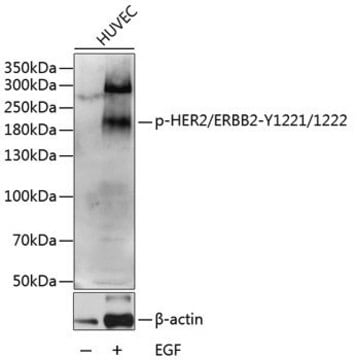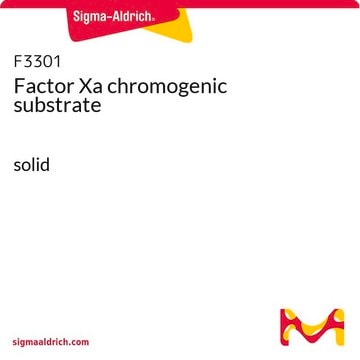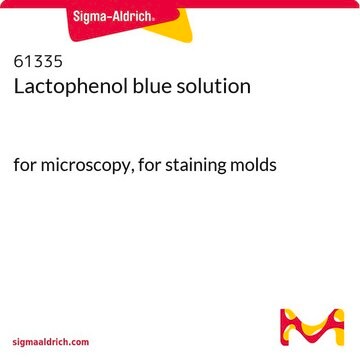10378461001
Roche
Chromozym PL
90%, powder, pkg of 20 mg
Synonym(s):
chromogenic substrate
Sign Into View Organizational & Contract Pricing
All Photos(1)
About This Item
UNSPSC Code:
12352204
Recommended Products
Quality Level
Assay
90%
form
powder
packaging
pkg of 20 mg
manufacturer/tradename
Roche
storage temp.
room temp
General description
Chromozym® PL is a chromogenic substrate. It is a synthetic tripeptide substrate and is more plasmin-specific.
Application
Chromozym® PL has been used:
- to determine the plasmin enzymatic activity using human umbilical vein endothelial cells (HUVEC) cell extracts
- as a chromogenic substrate for proteolytic activity in murine lung homogenates
- as a substrate of plasmin in plasminogen activation assays
Quality
Purity: 90% Tosyl-Gly-Pro-Lys-4-nitranilide acetate (enzymatic)
Contaminant: <0.5% free 4-nitraniline
Formula: C26H35N6O7SCOOCH3
Contaminant: <0.5% free 4-nitraniline
Formula: C26H35N6O7SCOOCH3
Sequence
Tosyl-glycyl-polyl-lysine-4-nitranilide-acetate
Physical form
Powder
Preparation Note
Working concentration: Approximately 0.3 to 0.6 mM
Storage conditions (working solution): 2 to 8 °C
A substrate solution (3 mM) is stable for at least two weeks if stored at 2 to 8 °C. Avoid contamination with germs.
Storage conditions (working solution): 2 to 8 °C
A substrate solution (3 mM) is stable for at least two weeks if stored at 2 to 8 °C. Avoid contamination with germs.
Other Notes
For life science research only. Not for use in diagnostic procedures.
Legal Information
Chromozym is a registered trademark of Pentapharm AG, Basel
Storage Class Code
11 - Combustible Solids
WGK
WGK 2
Flash Point(F)
Not applicable
Flash Point(C)
Not applicable
Certificates of Analysis (COA)
Search for Certificates of Analysis (COA) by entering the products Lot/Batch Number. Lot and Batch Numbers can be found on a product’s label following the words ‘Lot’ or ‘Batch’.
Already Own This Product?
Find documentation for the products that you have recently purchased in the Document Library.
Justin G Mathew et al.
Applied bionics and biomechanics, 2017, 9040161-9040161 (2017-07-01)
Vitronectin is a matricellular protein that plays an important role in both coagulation and angiogenesis through its effects on cell adhesion and the plasminogen system. Vitronectin is known to bind to endothelial cells upon integrin activation. However, the effect of
C Kluft et al.
Blood, 59(6), 1169-1180 (1982-06-01)
This study concerns a case of congenital homozygous deficiency in alpha 2-antiplasmin associated with a severe hemorrhagic diathesis. Heterozygous family members also show a mild bleeding tendency. The propositus is a 17-yr-old male born of white parents and showing a
L S Engel et al.
The Journal of biological chemistry, 273(27), 16792-16797 (1998-06-27)
Comparisons of virulence between a Pseudomonas parent strain and an isogenic mutant devoid of protease IV have demonstrated a significant role for this enzyme during infection. We have characterized purified Pseudomonas aeruginosa protease IV in terms of its biochemical and
Jessica L Bradshaw et al.
mSphere, 3(3) (2018-05-04)
Pneumonia is a pulmonary disease affecting people of all ages and is consistently a leading cause of childhood mortality and adult hospitalizations. Streptococcus pneumoniae and Pseudomonas aeruginosa are major lung pathogens commonly associated with community-acquired and nosocomial pneumonia. Additionally, mixed
Dolores A Ayón-Núñez et al.
Acta tropica, 182, 69-79 (2018-02-22)
The larval stage of Taenia solium (cysticerci) is the causal agent of human and swine cysticercosis. When ingested by the host, T. solium eggs are activated and hatch in the intestine, releasing oncospheres that migrate to various tissues and evolve
Our team of scientists has experience in all areas of research including Life Science, Material Science, Chemical Synthesis, Chromatography, Analytical and many others.
Contact Technical Service








